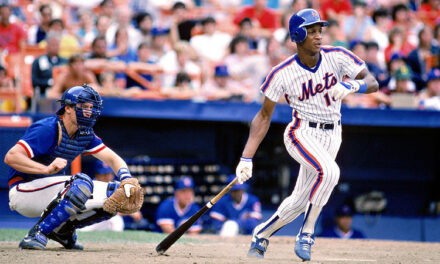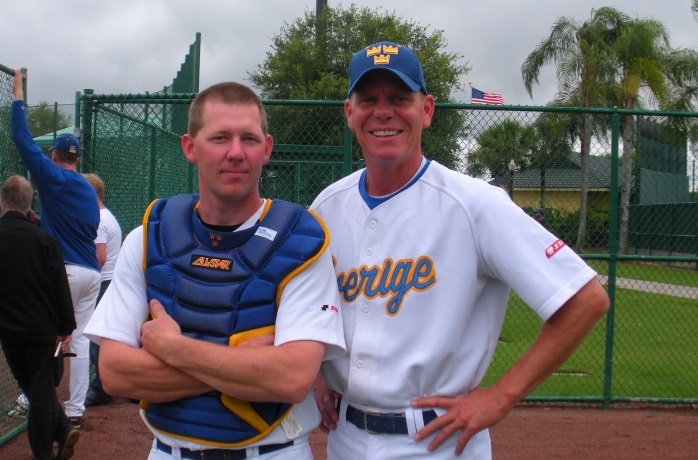
New York was not atop Dennis Cook‘s list of places he wanted to necessarily call home.
The hustle and bustle atmosphere and the sheer size of the city were a bit daunting for the left-handed reliever, who had already played for seven organizations by the time he was dealt to the Mets in the winter of 1997.
But something changed for Cook along the way; he fell in love with the city and the fans.
Cook, 56, spent four seasons with the Mets as a lefty out of the pen from 1998-01, appearing in 255 games while pitching to a 3.86 ERA. He’s one of only nine Mets relievers to appear in 70 or more games multiple times (1998, ’99) and prided himself on being available out of the pen whenever Bobby Valentine needed him in the game.
His first season with the Mets in 1998 was a career year for the then 35-year-old Texas native. Cook posted career highs in appearances (73), FIP (3.09), strikeouts-per-nine (10.5), and bWAR (2.0).
Among relievers with a minimum of 50 innings pitched in ’98, Cook posted the 11th-best left-on-base percentage (83.1) and the eighth-lowest ERA (2.38).
In 1999, the year in which the Mets returned to the postseason for the first time since 1988, Cook neutralized left-handed hitters to a slash of .200/.273/.257 and once again appeared in at least 70 games for the second-straight year.
Cook spent fifteen seasons in the majors, pitching for nine different organizations and appearing in 665 games. Not only was Cook productive on the mound, he could handle the bat, too. Having been primarily a right fielder in college, Cook was a force at the plate, posting a .263/.283/.355 line over 122 plate appearances.
He received the bulk of his plate appearances in 1989-90 (97 of his career 122 PA), when Cook split time between starting and relieving. Among pitchers to record at least 80 PA between 1989-90, Cook led in batting average (.264), OBP (.264) and slugging (.341)
After he retired from the game following the 2002 season, in which he pitched for the World Champion Anaheim Angels (he did not appear in the postseason), Cook still had the desire to compete. He wanted to play the outfield again and looked to teams in Europe for a shot.
Cook’s mother is 100 percent Swedish, so he contacted the Swedish National Team to see if they were in need of a player for their upcoming World Baseball Classic qualifier.
Unfortunately, the immigration side fell through for Cook, and he was unable to play.
While he wasn’t able to compete on the field, Cook still got the chance to fill the competitive itch. The Federation asked if Cook had any interest in managing the club, and without hesitation Cook was in.
He spent several seasons managing the Swedish National Team, was the pitching coach for the German National Team, and a pitching advisor for the Italian club in last year’s World Baseball Classic. Adding to his busy schedule, Cook undertook the job of pitching coach for the Chatham Anglers in the Cape Cod League this past summer.
A baseball lifer, Cook is hopeful to one day return to his alma mater at the University of Texas as a coach, or perhaps return to the majors in some capacity. He loves passing along the knowledge and wisdom he accumulated over his successful major league career and hopes to make an impact on the next wave of players.
I had the pleasure of speaking with Cook in early September, where we discussed his transition from starter to reliever, favorite memories with the Mets, and coaching in Europe and Cape Cod.
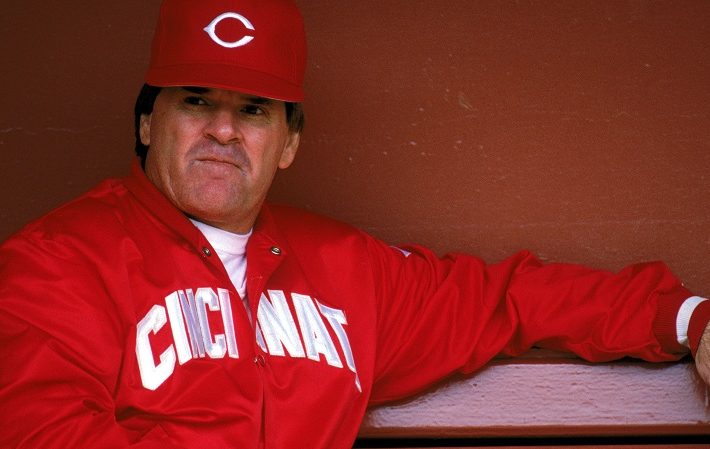
MMO: Who were some of your favorite players growing up?
Cook: My favorite player was Pete Rose. The Big Red Machine was my team.
MMO: And who introduced you to the game at a young age?
Cook: I guess my grandfather. He was a big Astros fan and we would hang out over at his house and he always had the Astros game on TV.
MMO: At what age did you start primarily pitching?
Cook: I would probably say I was twenty-two when I started just pitching. Growing up, I was an outfielder, but I also pitched. I went to the University of Texas and I was an everyday right fielder.
MMO: Well it makes sense that you primarily were a position player considering you hit so well in the majors (career .264 hitter over 122 PA).
Cook: I was okay. I did okay. [Laughs.]
MMO: You were originally drafted in the sixth round of the 1983 January Draft by the San Diego Padres before you officially signed with the San Francisco Giants when you were selected in the eighteenth round in 1985. What made you forgo signing with the Padres in ’83?
Cook: I wasn’t ready. I wanted to get a chance to play college baseball at a big four-year school. I was a juco guy then, and I just didn’t feel right. The timing wasn’t right so I just decided to stick around and keep playing.
MMO: Coming up through the minors and in your first several seasons in the majors, you were a starting pitcher. At what point were you asked to convert to the pen, and what was your initial reaction to that request?
Cook: I don’t remember exactly when somebody told me I was going to the pen. But my response to that was if I’m still in the big leagues, thank you. I’m not going to complain about my role.
The transition to the pen was better for me, especially for my personality. I wasn’t good with just playing once every five days, I felt like I was much better whenever I showed up to the ballpark thinking I’m going to have the chance to play every day.
The move to the pen was actually probably career-changing for me.
MMO: Your postseason resume is quite impressive: 16.1 IP, 5 H, 0 R, 16 SO, 0.980 WHIP. How did you stay so composed in those pressure situations?
Cook: I just liked pitching at that time of year. I never really felt pressure to do good or bad in those situations. My main pressure was letting my teammates down. I didn’t want to be the guy that let the team down and my guys down.
It was never about if I do badly this or that will happen. It was always to be as good as I could be for the guys and do my small part to try to help us as a team win.
MMO: You were traded to the Mets in mid-December 1997 by the Florida Marlins. What were your initial reactions to hearing you were headed to New York?
Cook: New York was probably one of my least favorite places to go just from the standpoint of the city because it’s just so big and fast. But it ended up turning out to be a great trade for me. Al [Leiter] was over there and got to meet Johnny Franco and [Mike] Piazza came on a little bit later.
It was a great trade for me and I ended up falling in love with the city and the people. It’s funny how things in life always work out for the best if we just get out of the way and let them happen.
MMO: Those Mets teams you were on in ’99 and ’00 were certainly memorable for what you guys accomplished on the field, with back-to-back postseason appearances and squaring off against the Yankees in the World Series.
Those teams seemed like such a close-knit group and had such diverse personalities. Were you guys as close as advertised and what was the general mood of those clubhouses?
Cook: Oh yeah, we got along great. There’s always going to be a little bit of tension because you’ve got so many personalities. But for the most part, man, it was awesome.
It was as good as any team that I ever was with. Great chemistry and we all got along, that’s the main thing. For the most part, we all got along and we’d hang out on the road and go get dinner together.
MMO: Your first season with the Mets in ’98 was one of your finest seasons. You posted your lowest FIP (3.09), highest SO/9 totals (10.5), most appearances (73) & highest bWAR (2.0). Can you think of any specific reasons why everything seemed to click so well for you in your age-35 season?
Cook: Probably my kids being born and being scared to death that I’m going to have to raise them and pay for them. It was my free agency year also, so it was a big year for me.
I’m just glad things worked out the way they did and that we were able to have a good year.

MMO: Are there specific moments that stand out from your Met tenure?
Cook: I think [Todd] Pratt’s home run was big in the playoffs. Getting Piazza was big. Watching Al Leiter become the great pitcher that he ended up being, and of course, being around Johnny Franco. [Robin] Ventura being there and the kind of guy he is, a top-notch human being.
New York turned out to be a very good experience for me, so I really have nothing bad to say about any player or anything with the organization. It was an awesome time for me.
MMO: You brought up Piazza a few times, and obviously, he was the superstar player that you guys needed in the middle of the lineup. His defense has always been something critics got on him about, though, over time he’s gotten more praise for his pitch framing. I’m curious what your take on Piazza defensively is?
Cook: I wouldn’t say he was the best I’ve ever thrown to, but the one thing he did well is he worked really, really hard back there for you as a pitcher. And for me, that’s what I want. I want guys that are going to bust their rear ends back there and work hard.
Some of the more talented guys I’ve thrown to were really lazy, and a lot of them were just really concerned about their percentage of guys they could throw out. So they threw out the window, trying to work to the pitcher’s strength. They tried to work to their strength to try to get their percentages up.
Piazza was not like that; he was very unselfish back there in that sense. And he busted his butt so I have nothing but positive things to say about him.
MMO: Who would you say was the best catcher you had?
Cook: You know a lot of times the best catchers are the backup guys. I was fortunate enough I threw to Darren Daulton, who was awesome. I threw to Bob Melvin, Kirt Manwaring, Charles Johnson and Ron Karkovice.
I can’t tell you that I’ve really thrown to a bad one. Dave Valle was a great catcher – backup guy for the Rangers, caught in Seattle. Steve Lake with the Phillies, Junior Ortiz and Sandy Alomar. There were a lot of guys that could really catch.
MMO: Who was the toughest hitter you faced and conversely who was someone you excelled against in your career?
Cook: Oh man, numbers-wise I’m sure you guys could look this up, but Lonnie Smith killed me, he seemed to kill me. Todd Zeile killed me and when he ended up with the Mets I was thankful so I didn’t have to face him.
People always ask me: Who was the best hitter you ever faced? And I don’t know what his numbers were against me but Paul Molitor, man, what a hitter! I mean, just quiet, sweet, quick hands; he could really freaking hit.
I can’t think of anybody that I owned really. I really don’t remember guys that you can say, ‘I really owned him,’ I just remember guys that hit me well.
MMO: As a former reliever, I’m curious what your thoughts are on today’s use of the bullpen? With starters not going as deep into games as they once did and the reliance on having a strong pen, how do you view today’s relief landscape?
Cook: I love it. As a bullpen guy, I would freaking love to be pitching in today’s game because you get multiple innings and multiple appearances and multiple days in a row. And I agree with that. I’ve said that for the last 15 years. If I was ever a GM, instead of spending all that money on starters, of course, you have to have good starting pitching, there’s no doubt about that, but instead of spending $20-25 million on one starter, man, I’d put that money in my bullpen and build my pen with guys you could use every day.
I think the teams that win, of course they have to have good starting pitching because it all starts there, are the teams with a strong bullpen. The four or five guys down there that can get people out on a nightly basis, those are the teams that are going to win.
MMO: Do you have any worries about potential overuse with the heavier reliance on relievers?
Cook: I think that you have to be smart in your warm-up routines, which I’m sure guys are. I haven’t been around the big league side of the game for a long time, but you have to be very smart with your warm-up, have to be very smart with your rest, arm care and weight training.
A lot of that depends on your manager and how he manages his bullpen. I played for Jim Leyland in ’97, and he was the very best I ever played for as far as managing a bullpen. He wanted to make sure that everyone got work, and not only got work, but were still fresh in August and September. And he was the very best at that and a manager is key.
I think the way you do that is they use their guys, they have their guys with set roles but they don’t ride them to death in June and July. They let other guys close games if your closer’s worked two or three days in a row, they’ll run another guy out there and tell him not to put his spikes on and that he has the day off. Just manage the bullpen in a way to keep everybody fresh. A lot of that is on the manager.
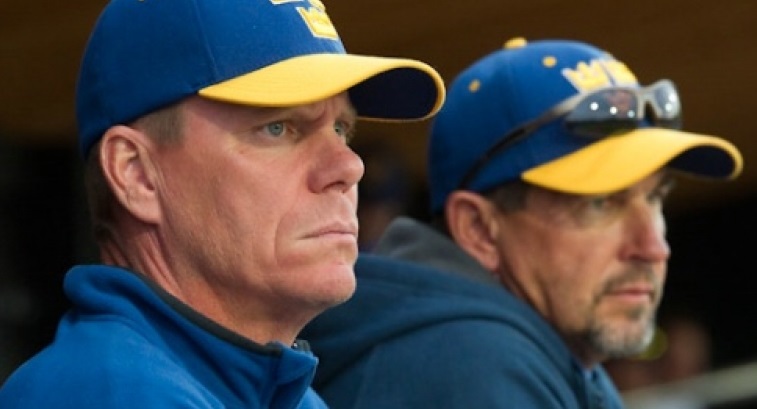
MMO: I read that after you retired following the ’02 season, you contacted the Swedish National Team to see if they needed an outfielder ahead of their World Baseball Classic qualifier. But instead, you went on to manage the club. Can you talk about that experience?
Cook: After I retired, I was sitting at home and my mother is Swedish. Her mom and dad are one hundred percent Swedish and she’s one hundred percent Swedish, and she grew up in the States. I was just sitting at home one day and I was like, Man, I need to get out and compete.
I looked up baseball in Europe and saw that the Swedes were going to be playing in the qualifier for the World Baseball Classic, and I was like, Hell, I want to see if I can get over there and watch the qualifications.
I got a hold of them over there and they said, “We’ll try to help you get a passport, dual citizenship, and you can play.” And I was fired up! The immigration side of it didn’t come through so I couldn’t play which was a bummer. But they said, “If you can’t play would you be interested in coming over and managing a few of these European Championships with our guys?”
I was in.
I went over there and took Scott Scudder with me as my pitching coach, who pitched in the big leagues for a while, and one of my best friends Steve Labay, who played in the Phillies’ organization. We want over and did that for like seven years. I managed over in Sweden for seven years and made some great contacts.
I went to a WBC qualifier with the German team as a pitching coach and then I went to the WBC with the Italians last year in Mexico. I’m actually working with the Italian Federation right now. In fact, on September 9th I’m heading to Italy for three weeks to do a premier six tournament over there in Amsterdam with the Italians and trying to figure out a way to qualify for the 2020 Olympics with the Italian team.
I’m involved over in Europe quite a bit, and I coached up in Cape Cod this past summer. I was the pitching coach in Chatham and I freaking loved every second of it. We made the championships [and lost], but our guys were awesome and we had some great arms and great kids who are unbelievably talented kids who are just hungry to learn.
Eventually, I’d love to get back to the University of Texas and coach there, or possibly get back in pro ball doing something. I’m just still trying to figure out what I want to do.
MMO: How was your time in the Cape Cod League? What was the competition like?
Cook: The Cape Cod League is the premier collegiate league in the country. It’s where all the top prospects go and there are anywhere from 20-60 scouts per game. That’s where they send all their dudes. We had guys that were touching 98 on our staff. Alek Manoah from West Virginia is a man. He’s six-seven, two-hundred and seventy [pounds]. In my opinion, he could pitch in the big leagues today.
We had a kid from St. John’s, Jeff Belge, a big left-hander. Low to mid-nineties, great command of the inside half to the right-handed hitters with his fastball. Got a kid out of the University of Pittsburgh, Dan Hammer, mid-nineties with hard sink. Kyle Hurt, U.S.C., mid-nineties and one of the best changeups I’ve ever seen at any level. Austin Bergner, North Carolina, mid to upper nineties with command of off-speed stuff.
We literally had a handful of kids that I think could pitch in the big leagues right now. These kids can play. We had Spencer Torkelson, who led the country in home runs as a freshman at Arizona State. He’s a legitimate power hitter and he’s one, from a collegiate standpoint, he’s probably the best collegiate hitter I’ve ever seen as far as average and power. He’s legit, I mean, he’s going to be in the big leagues by the time you blink.
MMO: You mentioned in your previous response that you’d like to one day get back into pro ball in some capacity. Is managing or coaching in the majors your ultimate goal?
Cook: No, my ultimate goal is to be a good dad. I think from a standpoint of going back to work, I’m as busy as I want to be. I think I’d be a good bullpen coach, maybe a special assignment guy. I talked to Jim Duquette at the Winter Meetings last year, I was up there with the Italian team, and it was great seeing him and Steve Phillips and those guys.
I’d love to do something like an assignment-type guy. I’d love to get back with New York and get within their system. But I don’t know if I want to work and ride the buses in the minor leagues.
I’d like to be someone that if somebody needed to be seen they could trust me enough to go out there and give them an honest opinion of them, or a team or something like that. But that’s kind of what I would like to do in baseball.
I have a son that’s pitching at TCU, and then I have two that are going to Ole Miss. I still want to be able to be a dad but I would love to get back into baseball. I love the grind but I just don’t want to get back on a bus.
MMO: A few of the retired players I’ve spoken to have mentioned getting back into the game in some capacity, but riding the bus in the minors is always the number one criticism.
Cook: I still think there are places in the game for guys like us. Special assignment guys that are working 90 days a year, sending us out for a week at a time to watch their prospects. Or give me your top-five draft picks and just let me follow and mentor and talk to about reading hitters and developing routines and that kind of stuff.
I think I would be good at that, I think I am good at that. And I really like that age group, the kids that I had in Chatham, I loved those kids. And the reason why I loved them is they’re talented kids, but they check their egos at the door. And I told them from day one, ‘I’m doing this to help you prepare for the next step, the next level.’
I told them I don’t care about your college – and I know that sounds bad – but I’m preparing them for what Minor League Baseball is like. You need to hone your craft, you need to get better at holding runners, the little things, fielding your position. You can’t just rear back and throw.
Manoah, the kid from West Virginia, this kid topped out at 98 for us. He was probably 94-96 mph for the most part, and he was a thrower. But by the end of the summer, he was a pitcher. I think that the kids are starving for that. In college baseball, the coaches are so controlling of every aspect of the game. They don’t want to lose their job on a 19-year-old’s decision that might cost them the game and their job. I get it, I understand. But the kids don’t know how to play baseball, they have no freedom, no creativity in how to play the game.
I feel like there’s an opportunity there for guys that played to be able to take them when they’re young and help them transition. They can transition at a faster pace if they had somebody there. The top prospects, give us – Johnny Franco, myself, whoever – that played the game for a little while and give us some of those prospects and say, go help them, go mentor them. If you could speed their development up by one year, think of how much money that is. They’re saving one year of development and they’re getting them to the big leagues faster.
A lot of it, Mathew, is just routines. Listen to this: We had guys in the Cape that came from top-five programs in the country and I talked to them and they were starting pitchers.
And I asked, ‘What was your routine before starts?’
One said, “I didn’t really have a routine before my start. I just kind of go throw.”
I was shocked that a kid – and this kid is legit – had no routine. No idea what he’s doing to warm up before a start, he just wakes up in the morning and goes, okay, I’m starting so I’m just going to go out there and throw.
I had to go write him a routine on an index card and I wrote the routine down and showed it to him. And he said, “Oh man, this is awesome.” And everybody started getting their phones and came over and took pictures and that tells me that nobody has a routine. I’m just shocked by that.
These guys are in top-notch programs with zero routines, zero plans, no idea how to throw a competitive bullpen, nothing. Not every one of them, but I would say eight out of ten were that way. They’re coming to you guys, they’re going to the minor leagues with no clue. Zero clue of what they’re doing.
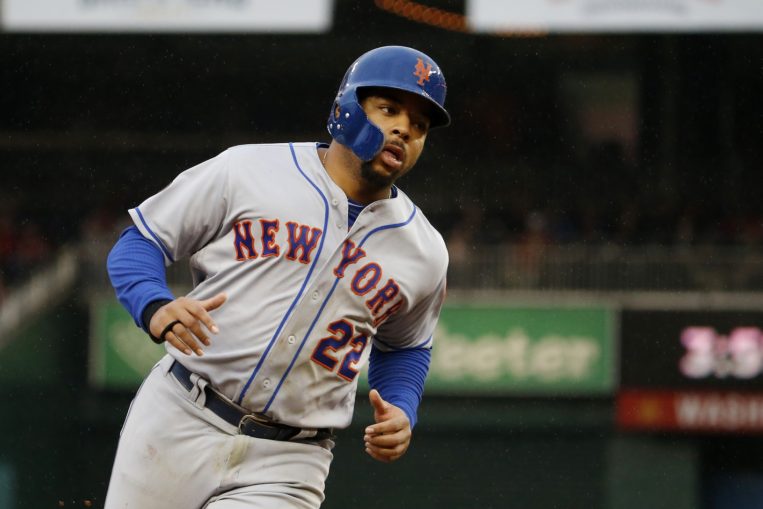
MMO: That’s incredible to hear! The lack of basic knowledge in fundamentals and baseball IQ is definitely worrisome. There was an example of that this year with the Mets when our first base prospect, Dominic Smith, didn’t know how to lay down a bunt.
Cook: And I was going to say it’s not only in the minor leagues where you see guys not knowing how to play baseball, go watch a big-league game. Go watch base running. Go watch outfielders throw. I’ve watched big league games and outfielders can’t throw anymore. Position players have a hard time bunting.
To me, it’s all the slug-ball mentality where you never practice, you just play on weekends. Then you go to college and everything is controlled; the coach tells you how to chew your food in the morning for breakfast. They have no creativity.
Go watch a Latin kid play, they have more creativity. Then you watch our top-notch kids play and they have no creativity, they don’t know how to play. And it’s frustrating to watch.
MMO: When you look back over your fifteen-year major league career, what are you most proud of?
Cook: What I’m most proud of is for the most part staying off the disabled list. I felt like I was a good teammate, of course, that’s for my other teammates to answer but in my heart, I felt like I was a good teammate.
I’m most proud of being able to be available and that the manager can count on me to say, ‘Yes, I can pitch’ and not looking for days off. I’m proud of being able to be a part of two World Series Championships and of course, the N.L. Championship in 2000 with the Mets.
I’m just proud that I was able to play for a long time, and those kinds of things were the highlights of my career.
MMO: I really appreciate your time today, Dennis. It was great reminiscing about your career. All the best.
Cook: Awesome, Mathew. Take care of yourself.
Follow Dennis Cook on Twitter, @cookie42dennis





